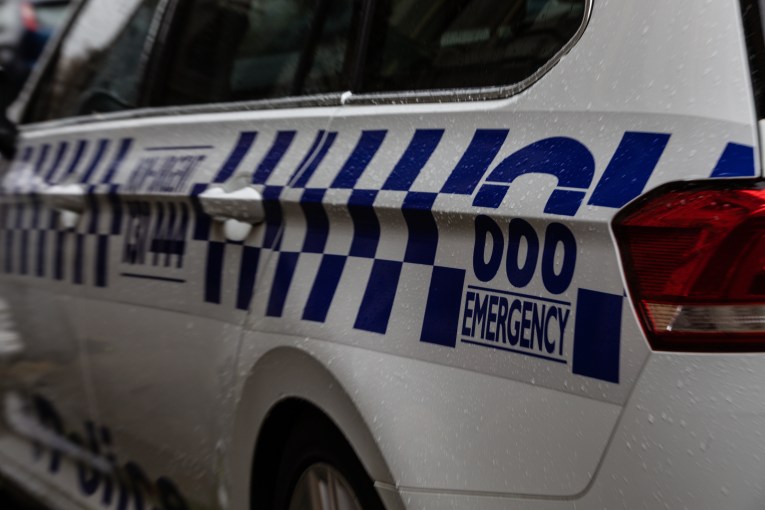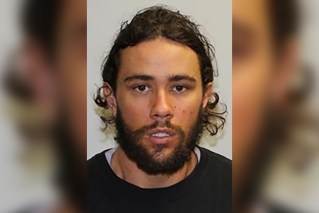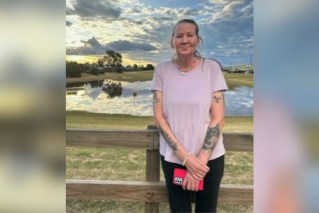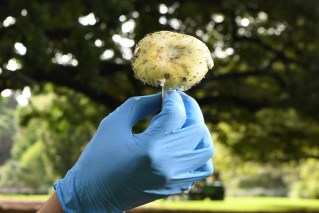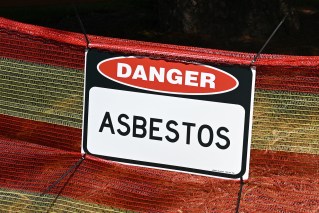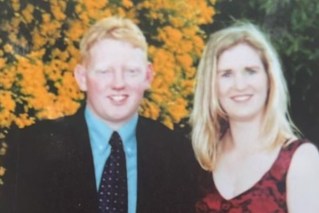Ivory crush sees 100kg of horn items destroyed in Melbourne
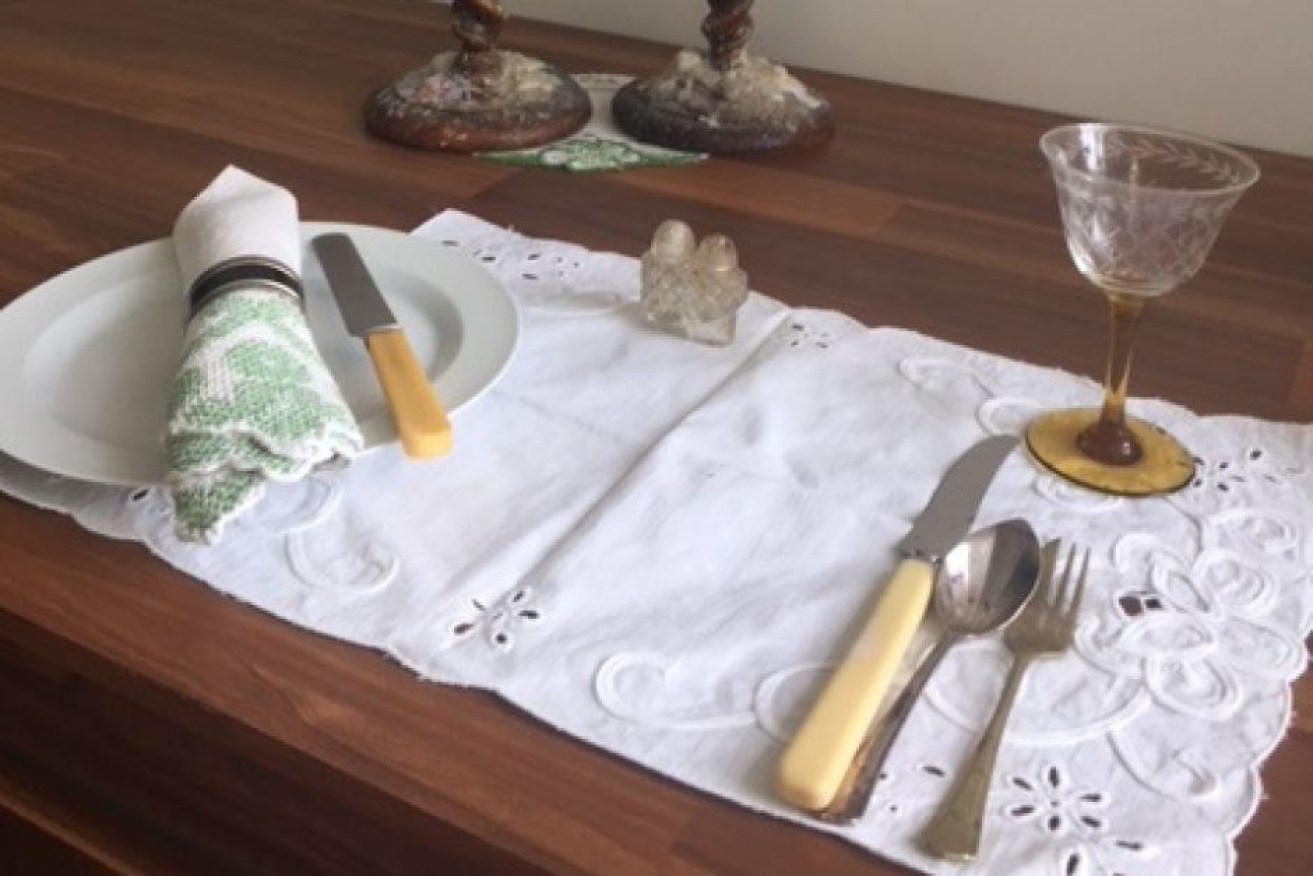
Janine Joseph destroyed her grandmother's knives on World Wildlife Day. Photo: Janine Joseph
Janine Joseph’s most prominent childhood memory is of an immaculately set dining table.
The table belonged to her grandmother, who lived in an Edwardian home in Elwood, on Melbourne’s bayside, throughout the 1950s.
“I can see the cloth serviettes, crystal glasses and china plates, but the ivory-handle butter knives are still what stand out the most,” she said.
Ms Joseph, who now lives in Armadale, inherited the knives when her grandmother died, becoming a family heirloom.
But then she decided to destroy them.
It was part of Melbourne Crush, Australia’s first ivory and rhinoceros horn destruction event.
Ms Joseph said the decision to get rid of the knives had been decades in the making.
“It wasn’t easy because of their sentimental value, but the day is gone where we can bury our heads in the sand and pretend these animals are fine.”
Melbourne Crush was held at Bourke Street Mall to coincide with the United Nations’ World Wildlife Day.

Jewellery, ornaments and trinkets were among the items destroyed. Photo: Carly Ravenhall
More than 100 kilograms of ivory and rhinoceros horn items were donated to be destroyed.
Event ambassador, fashion designer Collette Dinnigan, and Latrobe MP Jason Wood threw small items like jewellery, ornaments and trinkets into a concrete crusher.
Other items, including full tusks seized by customs officials uncovered in air cargo passing through Perth in 2015, were too large to be crushed and will be destroyed in the near future.

Ivory seized at Perth airport in 2015 were en route from Malawi to Malaysia. Photo: Australian Customs
Donalea Patman, founder of For the Love of Wildlife and host of Melbourne Crush, said she hoped the event would persuade the Australian government to ban the domestic trade of ivory and rhinoceros horn.
“The trade is banned internationally but if we’re to really stop poachers and traffickers we need to prohibit commercial trading inside Australia,” she said.
Ms Patman said there was only 400,000 African elephants left, while there were fewer than 30,000 rhinos in the wild.
For Karen Pomeranz the decision to donate six ivory napkin rings to the crush was an easy one.
Ms Pomeranz, who lives in Sherbrook, received the rings as a wedding present more than 20 years ago.
She said she was “never comfortable” owning ivory items.
“I’m glad they’re gone. The only value ivory has is on a living elephant.”
-ABC
